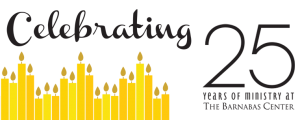Listening Requires an Open Stance
“Listening is a magnetic and strange thing, a creative force. The friends
who listen to us are the ones we move toward. When we are listened to,
it creates us, makes us unfold and expand.”
– Unknown
Listening requires an open stance. That’s why listening is hard for me. I live as a closed person. If I am to become a better listener, something basic has to shift.
Here’s a common example. I meet a new person at church. I start by shaking their hand. “Hi,” I say, “I don’t believe we’ve met. My name is Roger.” Externally, I appear friendly and relaxed. But internally, I am suddenly struck with the fear that there is bagel stuck in my teeth. Only one line into the conversation and I’m already closed off. A simple encounter with another person’s eyes and I become uncomfortable.
Other thoughts and fears follow: “Oh dear, did I already meet them last week and forgot?” or “What will I say next?” I am embarrassed, I am a professional counselor and I am botching a routine interaction. I grasp for a sentence to keep things going.
They smile. They came to church expecting to meet people. They assume I am friendly. And they offer their name in response, “Nice to meet you, my name is Jack Smith.” But because I am so busy inside I hear, ” Ho tht I mpffph. Jasddth Smfftid.”
I am still shaking their hand, trying to play back what they just said. But I am afraid they can see me scrambling, which produces more static. So I push forward with another question, “Do you live nearby?” When my wife walks over, I am forced into an introduction; “Umm…This is my wife, Jean. Jean, this is… (oh my…)…uh…. this is a new person who lives… uh…someplace…” At this point, Jack slides his hand out of mine.
This is a silly example, but it illustrates the common insecurity that lies just below the surface. When we encounter another human face eye-to-eye, we realize that something important is at stake. We want to be seen as worthwhile – even by a stranger. Our first impulse is to hide our desire for dignity – for me that means a mad internal scramble to “do it right.” But as you can see, my internal scramble is a closed, defensive loop that shuts down my ability to listen.
 Listening requires an open stance. You have to be able to let things in. Your ears have to be open. But so do your eyes and your heart. You have to be willing to be affected if you want to really hear. I’ll repeat that. To listen, you have to be willing to be affected.
Listening requires an open stance. You have to be able to let things in. Your ears have to be open. But so do your eyes and your heart. You have to be willing to be affected if you want to really hear. I’ll repeat that. To listen, you have to be willing to be affected.
If I am closed to change, if my goal is to be unaffected, then I will not be able to listen. I will be busy inside making sure that I don’t appear foolish or vulnerable. I won’t even catch their name, much less their story.
Listening requires that you allow the other person to impact you. Their smile. Their eyes. Their eagerness to meet someone. Their uncertainty about meeting someone. Their totality. Their story. And how they tell it. Listening requires that I be open to the experience of the other.
Listening, real human listening is not primarily observatory, but participatory. When you allow yourself to experience another and allow them to experience you – you become part of each other’s story. You will only truly hear what you are willing to be affected by.
 Roger Edwards joined The Barnabas Center in 1991. In addition to counseling individuals and couples, Roger teaches and leads discussion groups about applying the Bible to everyday life. He is a licensed professional counselor, holds a master’s degree in biblical counseling from Grace Theological Seminary in Indiana and earned a bachelor’s degree in engineering from the University of North Carolina at Charlotte. He is married to Jean, and they have seven children.
Roger Edwards joined The Barnabas Center in 1991. In addition to counseling individuals and couples, Roger teaches and leads discussion groups about applying the Bible to everyday life. He is a licensed professional counselor, holds a master’s degree in biblical counseling from Grace Theological Seminary in Indiana and earned a bachelor’s degree in engineering from the University of North Carolina at Charlotte. He is married to Jean, and they have seven children.







1 comment
Thanks so much for sharing this, because it reminds me so much of how I resond when meeting new people. I will look forward to my next encounter with a stranger to see how I handle it!